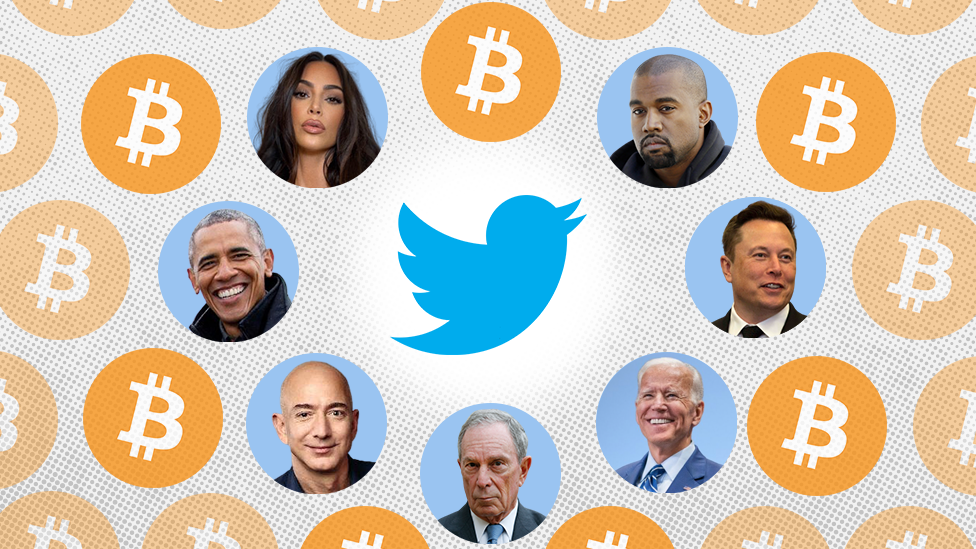The Benjamin Netanyahu Twitter hack that never was
- Published
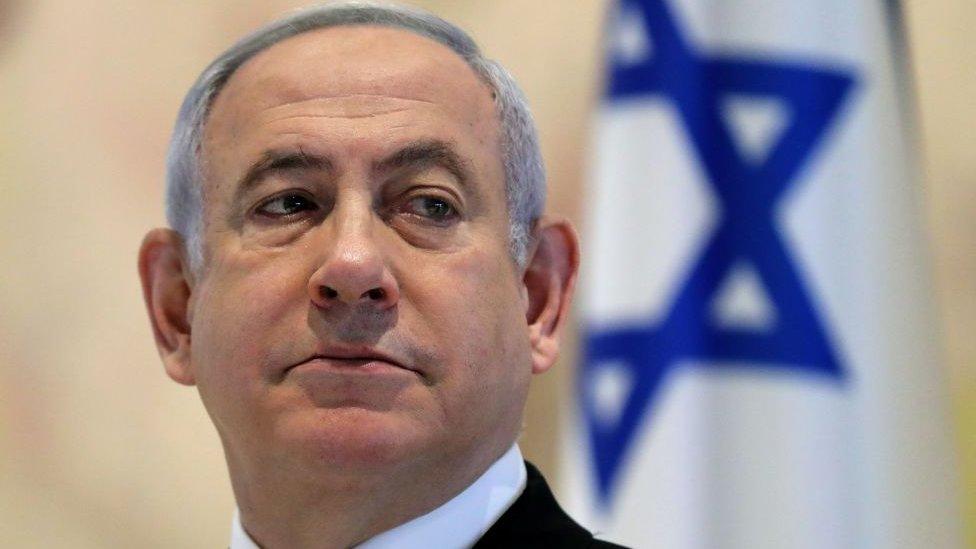
A tweet purporting to be from Israeli Prime Minister Benjamin Netanyahu was apparently fake
As many celebrities and politicians had their Twitter accounts hacked on Wednesday in an apparent Bitcoin scam, the site was flooded with screenshots of their bogus messages asking for cryptocurrency donations.
Among them were billionaires Elon Musk, Jeff Bezos and Bill Gates, as well as former US President Barack Obama and rapper Kanye West.
Israeli Prime Minister Benjamin Netanyahu also featured among the compromised accounts in some US media reports, external.
But there is no evidence that a screenshot, allegedly taken from Mr Netanyahu's Twitter account, is anything other than a fake.
Despite this, the rumour has persisted and spread, with Chinese media directly quoting reports on US outlets, including CNN, which included the Israeli leader's account among the list of those hacked.
The Times of Israel, external also picked up agency reports that included Mr Netanyahu on the list of those compromised.
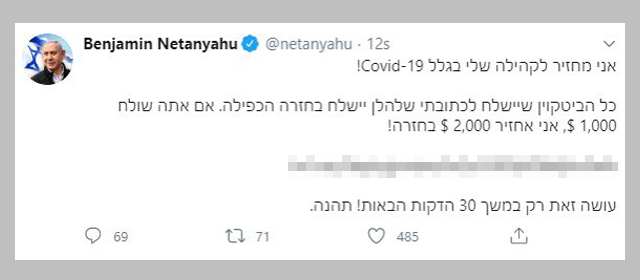
The tweet translates from Hebrew: "I give back to my community because of Covid-19! All the Bitcoin that will be sent to my address below, will be sent back doubled. If you send $1,000 I will give back $2,000! I am doing this only in the next 30 minutes! Enjoy."
The Israeli embassy in London told the BBC: "The tweet in question was not tweeted from the official account of the prime minister. We believe it must be fake."
The BBC has found no evidence the tweet ever appeared on Netanyahu's timeline, and the message itself seems to have been shared only as a screenshot, with no link to his Twitter account or the tweet in question.
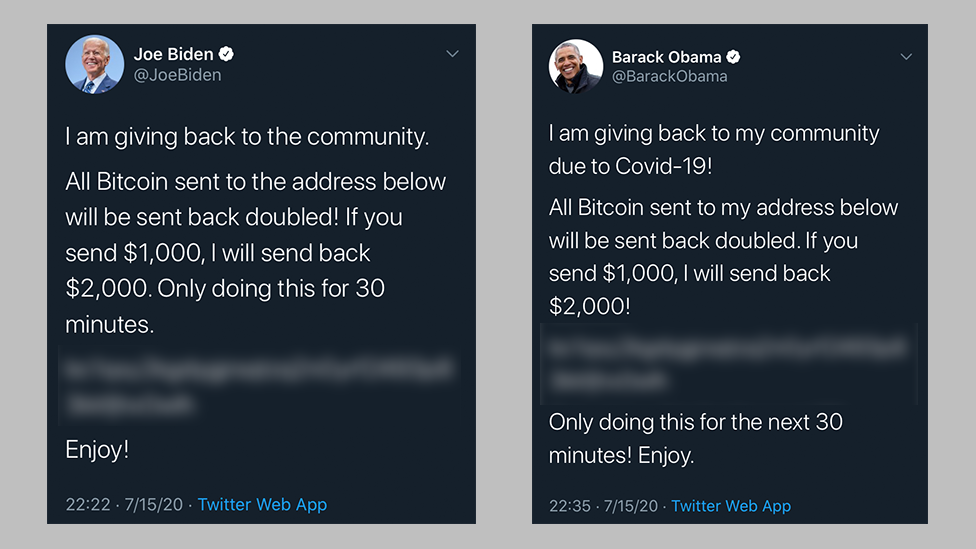
This isn't the first time a fake tweet from a prominent politician has prompted confusion online in a rapidly developing situation.
In the aftermath of the London Bridge attack in November last year, a fake tweet allegedly authored by the then Labour leader Jeremy Corbyn suggested he sympathised with the attacker who was shot dead by the police.
Like the supposed Netanyahu tweet, the fake Corbyn post was circulated only as a screenshot, with no link to the tweet in question.
Twitter has been investigating this latest security breach and, so far, found that hackers had targeted 130 accounts in total and were able to send tweets from 45 of those.
The company also said that attackers gained access to private messages, external of "up to 36" of the targeted accounts, including an "elected official" in the Netherlands.

How can you separate real from fake?
By Marianna Spring, Specialist disinformation and social media reporter
It comes as little surprise that during the chaos of this Twitter hack, fake screenshots of public figures being targeted by the same Bitcoin scam came to light.
It's worryingly easy to generate fake screenshots of tweets online and attribute them to public figures - even the prime minister of Israel. It's something we've seen happen during elections and breaking news events.
So how can you separate the real from the fake?
Always beware screenshots. Ensure that the account in the picture matches the Twitter handle, image and name of the official account.
Check the account in question to see whether the tweet exists - and whether there's any other unusual activity happening on its feed.
A lot of the Bitcoin scam tweets were taken down pretty quickly, though, so that doesn't always help.
Comparing the screenshot with the other real tweets from big public figures was the best way of identifying fakes. The same identical message was tweeted in English repeatedly - so messages in another language, or with any changes to the phrasing would be suspicious.
And if you can't verify it's true - don't share!
- Published16 July 2020
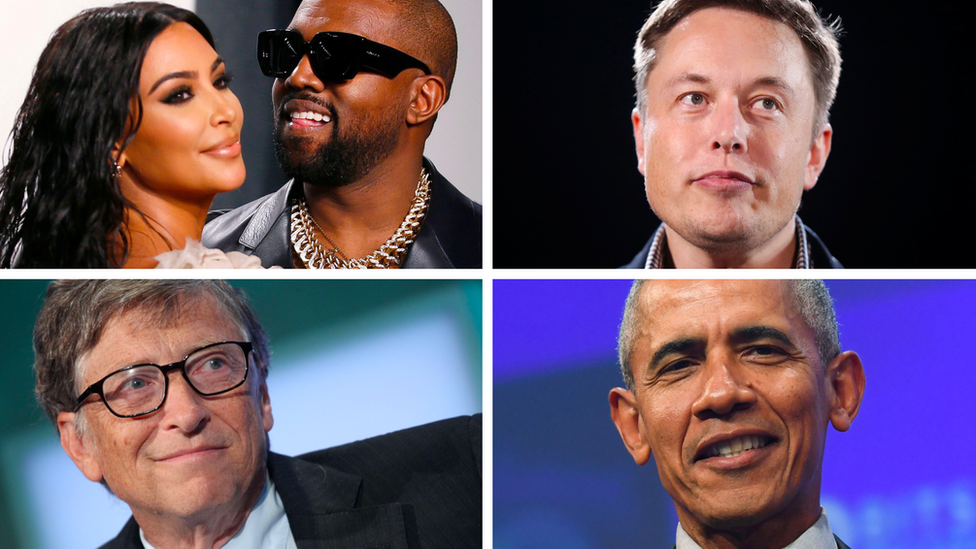
- Published16 July 2020
